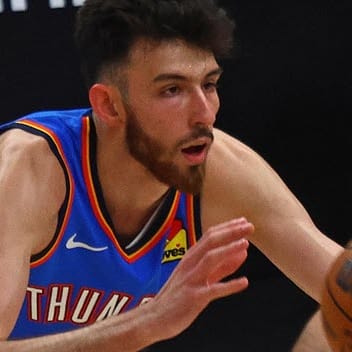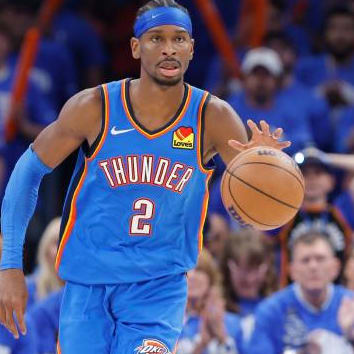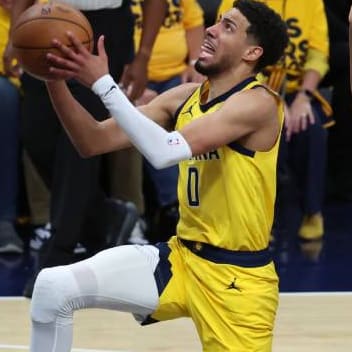This article is part of our NBA Draft Kit series.
MEMPHIS GRIZZLIES PREVIEW 2011
STATE OF THE FRANCHISE
A few seasons ago, losing a talented restricted free agent like Marc Gasol to a perennial contender would have appeared to be a foregone conclusion. But the fact that the Grizzlies signed him to a four-year $58 million deal on the heels of signing Rudy Gay (five years, $81.6 million), Zach Randolph (four years, $71 million) and Mike Conley (five years, $40 million) speaks volumes about how far the franchise has come over the past year.
That core, paired with a much-improved bench, helped the Grizzlies shock the basketball world by not only making the playoffs in 2010-11, but in eliminating the top-seeded Spurs in Round 1 and taking the Thunder to seven games in Round 2. Actually, it was that core minus Gay, as a partially-dislocated shoulder ended his season in March.
Chicago-based owner Michael Heisley appears to have Chicago-sized expectations, evidenced by a willingness to threaten the luxury tax. That open wallet and talent on the court could make the Grizzlies buyers at the trade deadline for the second straight season as they join the Western Conference's new middle class.
PLAYING TIME DISTRIBUTION
Marc Gasol and Zach Randolph should monopolize the majority of playing time at the five and four, with Darrell Arthur occasionally spelling both. Gasol averaged 31.9 minutes/game and Randolph averaged 36.3 last year, and it would not be surprising to see similar numbers in 2011-12, with Arthur chipping in 15-20. The Grizzlies will likely add another big
MEMPHIS GRIZZLIES PREVIEW 2011
STATE OF THE FRANCHISE
A few seasons ago, losing a talented restricted free agent like Marc Gasol to a perennial contender would have appeared to be a foregone conclusion. But the fact that the Grizzlies signed him to a four-year $58 million deal on the heels of signing Rudy Gay (five years, $81.6 million), Zach Randolph (four years, $71 million) and Mike Conley (five years, $40 million) speaks volumes about how far the franchise has come over the past year.
That core, paired with a much-improved bench, helped the Grizzlies shock the basketball world by not only making the playoffs in 2010-11, but in eliminating the top-seeded Spurs in Round 1 and taking the Thunder to seven games in Round 2. Actually, it was that core minus Gay, as a partially-dislocated shoulder ended his season in March.
Chicago-based owner Michael Heisley appears to have Chicago-sized expectations, evidenced by a willingness to threaten the luxury tax. That open wallet and talent on the court could make the Grizzlies buyers at the trade deadline for the second straight season as they join the Western Conference's new middle class.
PLAYING TIME DISTRIBUTION
Marc Gasol and Zach Randolph should monopolize the majority of playing time at the five and four, with Darrell Arthur occasionally spelling both. Gasol averaged 31.9 minutes/game and Randolph averaged 36.3 last year, and it would not be surprising to see similar numbers in 2011-12, with Arthur chipping in 15-20. The Grizzlies will likely add another big body to take on 10-15 minutes per contest. Rudy Gay could log somewhere close to 40 minutes per night as the primary small forward, but his minutes might be a little light early in the season
Mike Conley should lock down the point for 32-plus minutes per night with Greivis Vasquez and Josh Selby serving as the backups. The two-guard slot is probably the toughest to predict, as you could see O.J. Mayo, Tony Allen or Sam Young start (assuming Mayo is still a Grizzly). The three should average somewhere close to 22-26 minutes per night, with Mayo getting the edge in offensive-hungry situations and Allen on the court when the other team's offense needs to be starved. Xavier Henry served a spell as the team's starting shooting guard last season before he went down with a knee injury, so he could be a factor for 15-20 minutes in the back court.
PLAYER OUTLOOKS
Center
Marc Gasol: After living in his brother Pau's shadow for years, the other Gasol brother is doing quite well for himself these days. He finished his third season with averages of 11.7 rebounds, 7.0 rebounds, 2.5 assists, 0.9 steals and 1.7 blocks. While his overall production was slightly down from his breakout 2009-10 campaign, that can be attributed to a slight drop in minutes due to a surprisingly deep Grizzlies' front court, rather than a diminishing skill set. With Rudy Gay and Zach Randolph as the go-to scorers for the Grizzlies, Gasol is, at best, the Grizzlies' third offensive option, so no one should expect a significant boost in scoring for the 26-year-old anytime soon. But even if Gasol doesn't ever develop into the same type of offensive talent as his brother, he'll still hold plenty of fantasy value with his steady all-around production.
Hamed Haddadi: As of mid-December, it is unclear if/when Haddadi will be able to make his way back to the NBA because of visa issues. Once those are clear, the Grizzlies may bring him back at a minimal price to eat minutes up the middle when Marc Gasol needs to sit.
Forward
Darrell Arthur: Arthur logged the most minutes of any non-starter on the Grizzlies with 1609, as he was generally the first guy off the bench when Zach Randolph or Marc Gasol needed a break. Not surprisingly, Arthur set career highs in points, field goal percentage, blocks and assists. He also made it to the free throw line more times than he had in the previous two seasons combined, which is a positive development for a big guy who can hit 80+ percent of his free throws. He should continue in a similar role for 2011-12, and he would be a must-own if something happened to either Gasol or Randolph.
Rudy Gay: Gay was one of only two players to average over one block, three-pointer, and steal per game last season, the other being Kevin Durant. Unfortunately for Gay's owners, he dislocated his shoulder so badly he was forced to undergo season-ending surgery. Gay is expected to be ready to participate in regular activity by September, putting him in great position to start the 2011-12 season. Through 54 games played last season, Gay averaged 19.8 points, 6.2 rebounds, 2.8 assists, 1.1 three-pointer, 1.7 steals, 1.1 blocks, and 2.5 turnovers in 40 minutes. With his efficiency beyond the arc increasing last season, we might see Gay start to hoist up more three-pointers this season, a development that would raise his fantasy value even higher.
Zach Randolph: After years of not living up to his on-court talent and dealing with what seemed to be endless off-court issues, the much-maligned Randolph has put it all together. For the second consecutive season, Randolph averaged over 20 points and 10 rebounds, making him the only player in the NBA to accomplish that feat. As his game has matured, Randolph has become more efficient as a player, leading to his highest shooting percentage (50.1) and his lowest turnover (2.0) total since becoming a full-time player in 2003-04. He remains dreadful on the defensive end of the court, but Randolph will be remain one of the best scoring and rebounding combos in fantasy.
Sam Young: Young was the biggest beneficiary of O.J. Mayo's fall from grace and Rudy Gay's season ending injury in 2010-11, as he started a surprising 46 games after starting just one game in his rookie year. However, the swing man's scoring and rebounding stats slightly dipped despite the additional playing time. His starting minutes may diminish in 2011-12 with Gay fully recovered, but Young could still be an affordable source of steals.
Guard
Tony Allen: Allen's defense-first style proved to be a better fit in Memphis than O.J. Mayo's offense, and Allen finished the season as the starting two-guard. Although most of his counting stats are altogether unimpressive, Allen's shooting efficiency from the field (54 percent) and contributions in the steals and blocks categories made him a surprisingly significant player to own. Allen will probably need to battle Mayo for the starting gig, but his role could continue to grow if the Grizzlies deal Mayo at some point during the season.
Mike Conley: For the first time in his four-year career, Mike Conley really stepped up and earned the point guard spot in Memphis last season. Not coincidentally, Memphis reached the playoffs. Much of the credit for the Grizzlies' breakout season rightfully goes to the team's frontcourt tandem, but Conley's season – with career-best numbers in scoring, assists and steals – should not be overlooked. Conley does not rank up there with the Pauls, Rondos and Williams of the world, but the Grizzlies believe in him enough to grant him a five-year, $40 million deal. The club drafted Josh Selby in the 2011 Draft, but he should not threaten Conley's monopoly on the point position.
Xavier Henry: Injuries tarnished Henry's rookie season after the Grizzlies selected him 12th overall in the 2010 Draft, and a right knee sprain ended his season in February. Henry exhibited a good shot from beyond the arc in college, but he sunk only two three-pointers in the NBA en route to a 4.3 ppg average. Henry could miss the first month of the season with torn ligaments in his right ankle, so it might take him some time to carve a niche in the Grizzlies' guard rotation, but he could take on a larger role in the offense if/when O.J. Mayo departs.
O.J. Mayo: Mayo was moved into a bench role a month into last season, and he remained there until the final two games of the playoffs. It remains to be seen is whether coach Lionel Hollins was impressed with Mayo in those final two games, and if that will translate to Mayo reclaiming the starting shooting guard role this season. 2010-11 marked the first time Mayo failed to hit at least 100 three-pointers, but he also attempted only attempted 264 shots from beyond the arc. A technicality prevented the Grizzlies from trading Mayo to the Pacers last season. Though he reportedly harbors no ill will, he could benefit from a change of scenery.
Jeremy Pargo: Pargo spent the past two seasons in the Israeli Premier League after going undrafted in 2009. He averaged 4.3 assists and 1.1 steals per game with Maccabi Tel-Aviv in 2010-11, and he was known for his athleticism and ball-handling skills at Gonzaga. That being said, he will probably be a bit player and a back-of-the-bench guard in his first NBA season.
Josh Selby: Selby could have been a lottery pick in 2010 if the NBA still allowed high school entrants, but a disappointing freshman season at Kansas made him available at pick no. 49 for the Grizzlies in 2011. He impressed many in "lockout leagues" over the summer, displaying good athleticism and decent range. Some have questioned his ball-handling skills, which may limit the time he spends at the point in his formative years.
Greivis Vasquez: Vasquez occupied a nebulous role in his rookie season, but he took his game to another level come the playoffs, and he hit 51.2 percent of his shots during his 13 postseason games. His role could expand if he improves on his perimeter shooting. Vasquez should battle in camp to take the reins as the team's No. 2 point guard, but he will need to improve his ball handling skills to improve on his 12.3 minutes per game from last year.
Sleeper
Darrell Arthur: Arthur took a backseat to the Marc Gasol-Zach Randolph tandem in the playoffs, but he experienced the best regular season of his three-year career in 2010-11. Moreover, Gasol and Randolph should receive more time on the bench in the league's new 66-game schedule, and Arthur is the only other guy on the team who can cover either of their spots, which could mean he receives closer to 25 minutes per contest.
Bust
Xavier Henry: The 12th overall pick from the 2010 draft has yet to prove he can remain healthy in the NBA, with unique injuries ending his 2010-11 season prematurely and holding him out of camp to start 2011-12. Even when healthy, he will likely slot behind Tony Allen, O.J. Mayo and Sam Young at the two, which caps his ceiling fairly low.










